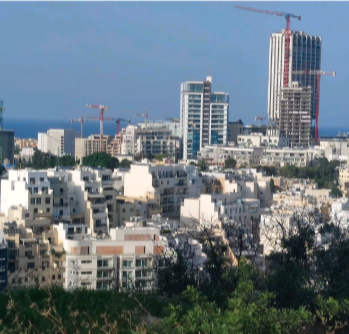“Economic booms contain the seeds of their own destruction... None of Malta’s economic sectors should be allowed to overheat and reach overcapacity... Malta’s healthy growth needs to be managed to stop it developing into an unsustainable boom.”
These words were pronounced by Edward Scicluna, Malta’s Finance Minister, during a recent Finance Malta conference as reported by the Times of Malta.
Scicluna, an economist, warned against the “supermarket” mentality in the construction industry, whereby developers try to compete with large-scale projects irrespective of the demand.
Coming from the Minister of Finance, this statement has certain weight. It can be interpreted that within Labour’s Cabinet there are those who do not simply subscribe to an oligarchy which seems to be more interested in defending its short-term interests over the common good.
It also shows that one of the best performers of the current government is giving importance to sustainability.
Scicluna is not the first to put forward such views. In recent decades, these views were also pronounced by different voices within academia, civil society and politics.
It seems that Malta’s economic growth is a coin with two sides. On the one hand, this provides jobs and relative stability. On the other side, there is growing social inequality and environmental precariousness.
The latter could have a direct impact on the former if short-term economic considerations are treated like unquestionable dogma. Spain can teach us something about this.
Some relate such considerations to the ‘tragedy of the commons’, a concept proposed by Garret Hardin some decades ago, wherein short-term interests of free-riders could bring ruin to all.
Maltese land is seen by the construction industry as a resource to exploit, and little consideration is given to holistic, cumulative and long-term impacts
One can also go back to the texts of Nicos Poulantzas, who once wrote about the economic state apparatus and the way it functions. Were the Greek sociologist alive today, he would have plenty to write about if he considered Malta as a case study.
Indeed, Maltese governments have depended too much on the construction industry and vice-versa. One provided jobs and economic growth, and the other provides the necessary infrastructure, incentives and policies to facilitate matters. Often, the State also provides land at dirt-cheap prices for developers so that they can go on with the construction frenzy.
Hence Maltese land is seen by the construction industry as a resource to exploit, and little consideration is given to holistic, cumulative and long-term impacts of this. Corporate social responsibility and community investment remain buzzwords fit for propaganda but rarely seen in everyday life.
Take Manoel Island. The land was practically given to developers at a pittance and they simply stopped developing when they no longer saw it profitable to do so. In the meantime, much of the island is a rundown mess, with dirt and litter accumulating in various places, while other places are declared out of bounds for the public.
Take The Point. The pedestrianised square is now facing a huge building which has practically blocked the sea view for visitors. As long as an extra buck is made, the commons comes second.
Take Fort Cambridge. The same developers who want to develop a 40-storey skyscraper in violation of the original development brief, have left parts of the surrounding area looking like a shanty-town, with wires, bricks and other eyesores all over the place.
In the meantime, an environment planning study on development in the area warns that residents could be elbowed out of Tignè and Qui-si-sana.
I can go on with other similar examples around Malta. It is difficult to predict if and when this economic bubble will burst. Yet, in the meantime, the general public is bearing the brunt of overdevelopment, loss of public space, construction nuisance and traffic problems.
The public is also subsidising such big developers. Arthur Gauci, CEO of Seabank, could not have put it better, when he told the Times of Malta the following words regarding the proposed development on public land at St George’s Bay:
“If we were to pay commercial rates for the land, a hotel on its own would never be viable. The numbers just don’t add up.”




















